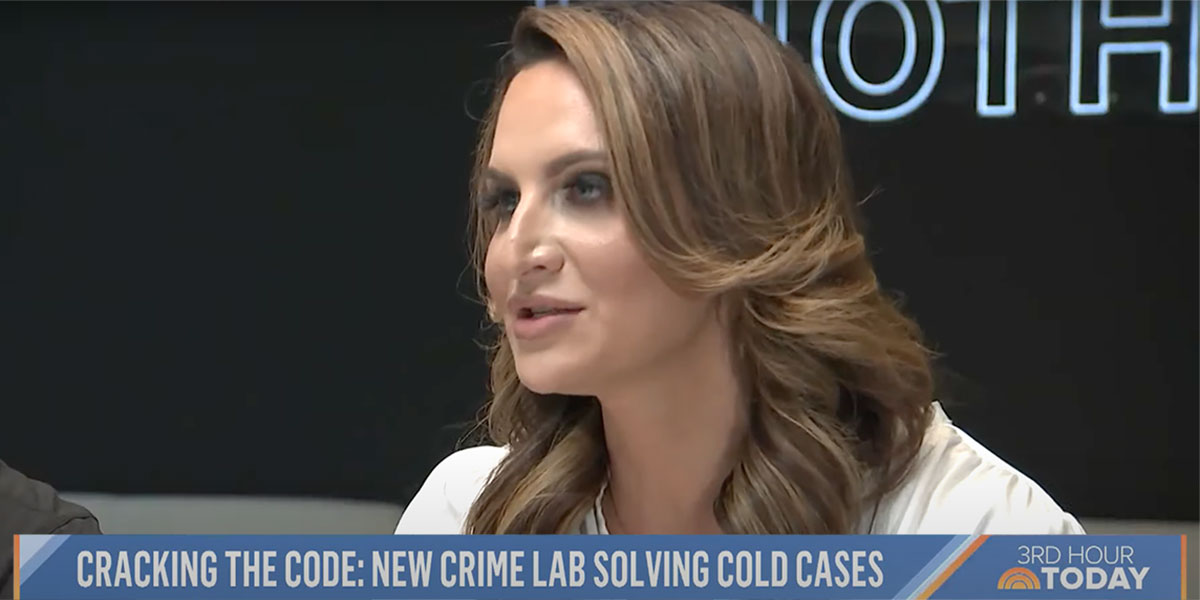‘Solving the unsolvable’ — Baylor alum’s company uses genomics to solve cold cases

For families who have endured the trauma of unsolved crimes, advances in DNA testing have provided hope — but they are still limited in scope. So what’s the next breakthrough in solving cold cases? A Baylor alum and her husband are doing their part to break through the limitations of DNA testing and solve crimes once considered unsolvable.
Kristen Mittelman (BS ’00) is a Baylor chemistry graduate who now serves as chief development officer for Othram, a company that analyzes degraded or lacking DNA samples. Mittelman and her husband, David (Othram’s CEO), started the company in 2018 — and results have come rapidly. Their work has helped identify remains or solve crimes across dozens of states, many of them dating back to the 1970s or earlier.
How are they “solving the unsolvable?” The Mittelmans explained their approach on NBC’s TODAY show earlier this year:
Kristen demonstrated that by touching her husband on the shoulder, she had just left hundreds of cells on his shirt. With Othram’s approach, they need only a few cells — 15 in her example, or 0.1 nanograms of DNA.
While most DNA testing utilizes around 10 biomarkers for comparison — and CODIS, the national DNA database for the U.S., is based on 20 markers — Othram uses hundreds. Forensic Magazine described Othram as “the world’s only laboratory purpose-built to combine genome sequencing with advanced human identification applications. The laboratory is also the first facility in the United States or Canada offering end-to-end, in-house processing from forensic evidence to forensic genetic genealogy leads.”
As they partner with law enforcement around the nation, Othram’s approach has connected dots and filled gaps that previous technologies lacked the ability to bridge. Othram demonstrated the possibilities of their method by identifying remains from 1881, and helping police solve the 1974 murder of a young woman named Carla Walker in Fort Worth.
“We’re often the last hope,” Kristen said on TODAY. “Every time they give you that last bit of DNA or that last bit of evidence, that is someone’s last chance of being identified, and someone’s last chance to get justice for what happened to the person they lost… I think this could be a deterrent for crime. If you left DNA at a crime scene, it’s a matter of time before someone like us processes it.”
Othram’s opportunities to do just that are expanding. Congress recently voted to fund this type of work, and the National Missing and Unidentified Persons System recently partnered with Othram to apply and advance their tools to reconnect missing or unidentified individuals with their families.
Sic ’em, Kristen Mittelman and Othram!

